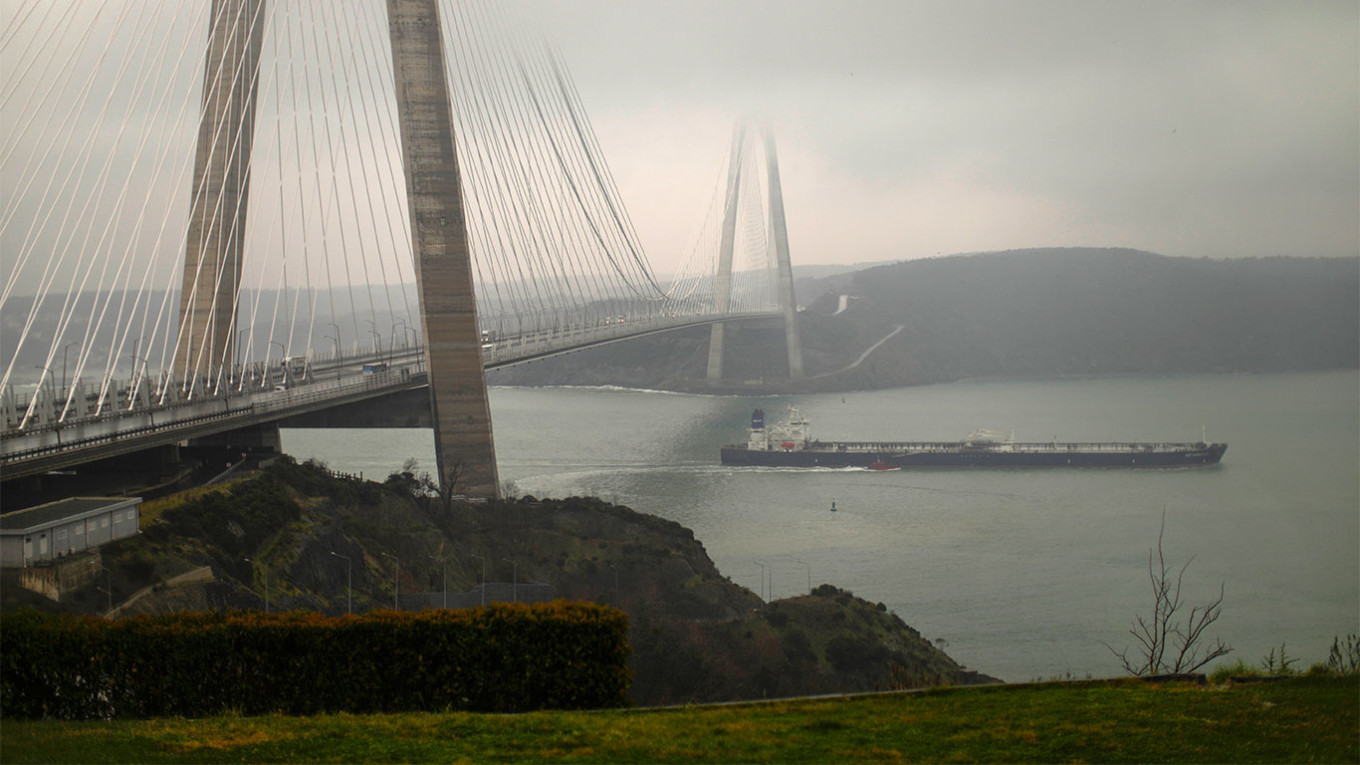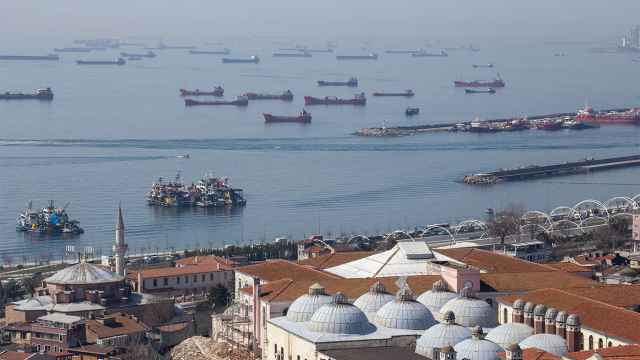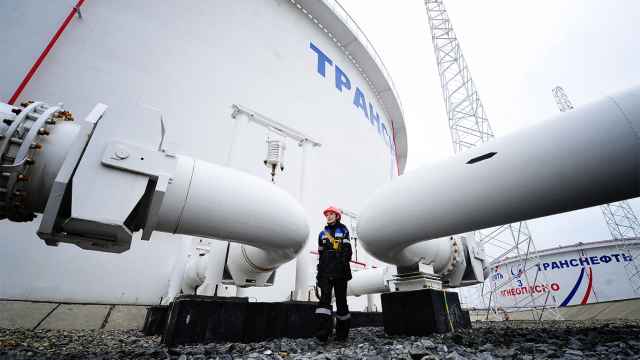Millions of barrels of oil on apparently non-Russian tankers were stuck in Turkish waters due to Ankara’s proof-of-insurance demands as part of a Western price cap on Russian crude, Bloomberg reported Thursday.
Shipping data compiled by the news agency showed 26 tankers with more than 23 million barrels of oil from Kazakhstan had been unable to pass Turkey’s Bosphorus and Dardanelles straits as of Wednesday.
Turkey started requesting proof of insurance from tankers loaded with Russian crude oil this week after the EU, G7 and Australia imposed a $60-per-barrel price cap to punish the Kremlin for its war on Ukraine.
But Bloomberg reported that Turkey’s rules apply to any tanker with cargo on board regardless of country of origin.
“This letter demanded by us is only about confirming that the ship’s insurance is valid during its passage through [the Turkish] Straits,” it quoted Turkey’s transport ministry as saying.
The Biden administration sees no reason to subject oil shipments from Kazakhstan to new procedures, U.S. Treasury Secretary Janet Yellen told reporters Thursday.
The Biden administration also has no reason to believe the Kremlin is involved in Turkey’s decision to block transit, Yellen added in comments carried by Reuters.
Kazakhstan’s state oil and gas giant KazMunayGas, meanwhile, said it was working with insurance providers to address Turkey’s concerns and free up around 10 Kazakh oil tankers.
Turkey’s transport ministry placed the backlog of stranded tankers at 15, 11 of which were bound for the European Union, Bloomberg said.
The Kremlin has said it would not recognize the Western price cap and was working on response measures.
A 1936 treaty guarantees the freedom of navigation to merchant vessels passing through Turkey's Bosphorus and Dardanelles straits.
But it also gives Turkey the right to regulate security — a provision it is now using to make sure the oil ships are insured against spillage and other accidents.
The TankerTracker.com industry monitor said early Wednesday that Russian seaborne crude oil exports had halved in the past 48 hours.
The Financial Times reported Tuesday that Russia has assembled a separate "shadow fleet" of more than 100 vessels in an effort to circumnavigate the Western sanctions regime.
These ships are reportedly using non-Western insurers and selling oil at higher prices to countries that have not subscribed to the new sanctions.
FT, citing an unnamed oil industry figure, said that Turkey was waving through these ships but holding up the ones with Western insurance coverage.
AFP contributed reporting.
A Message from The Moscow Times:
Dear readers,
We are facing unprecedented challenges. Russia's Prosecutor General's Office has designated The Moscow Times as an "undesirable" organization, criminalizing our work and putting our staff at risk of prosecution. This follows our earlier unjust labeling as a "foreign agent."
These actions are direct attempts to silence independent journalism in Russia. The authorities claim our work "discredits the decisions of the Russian leadership." We see things differently: we strive to provide accurate, unbiased reporting on Russia.
We, the journalists of The Moscow Times, refuse to be silenced. But to continue our work, we need your help.
Your support, no matter how small, makes a world of difference. If you can, please support us monthly starting from just $2. It's quick to set up, and every contribution makes a significant impact.
By supporting The Moscow Times, you're defending open, independent journalism in the face of repression. Thank you for standing with us.
Remind me later.






